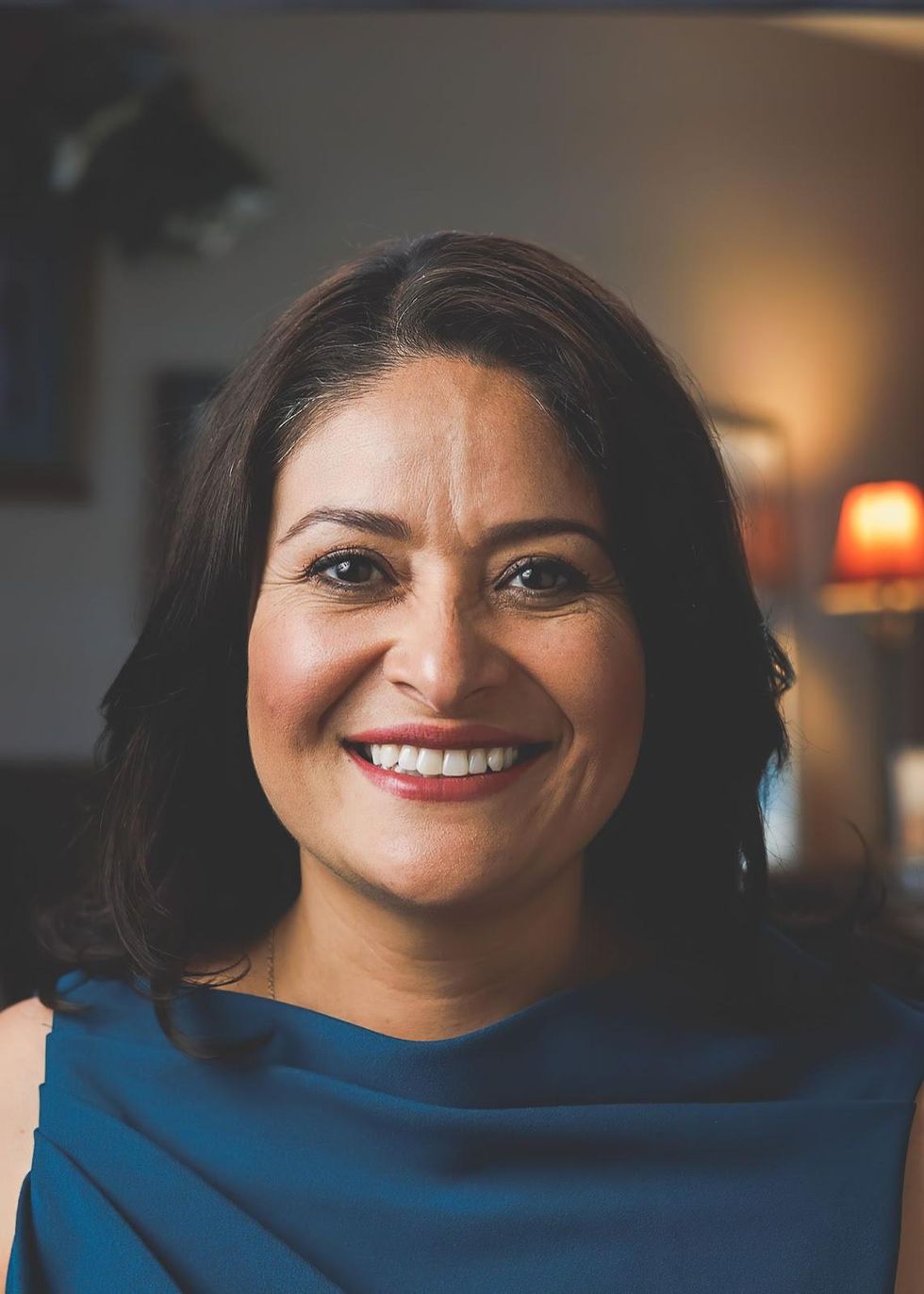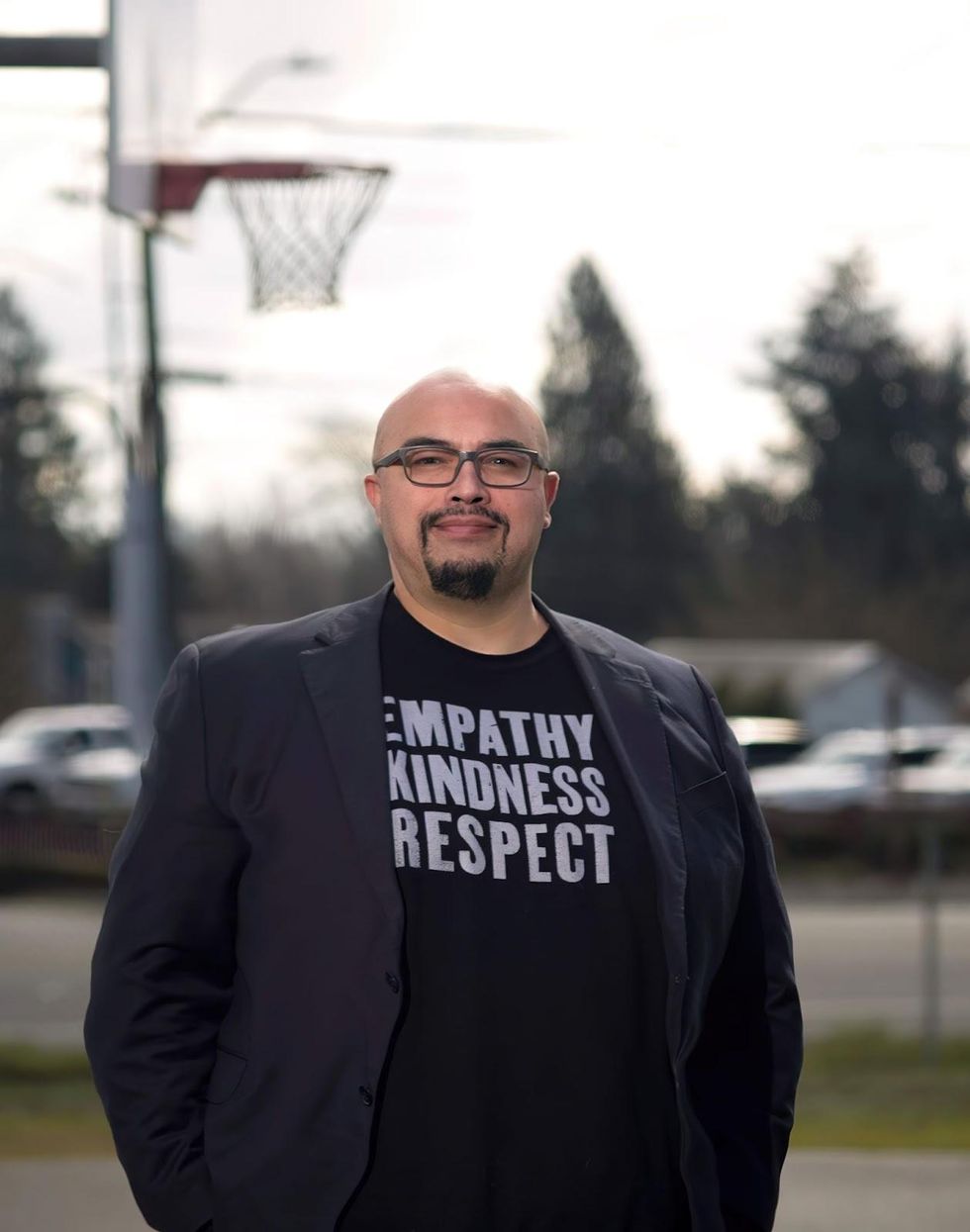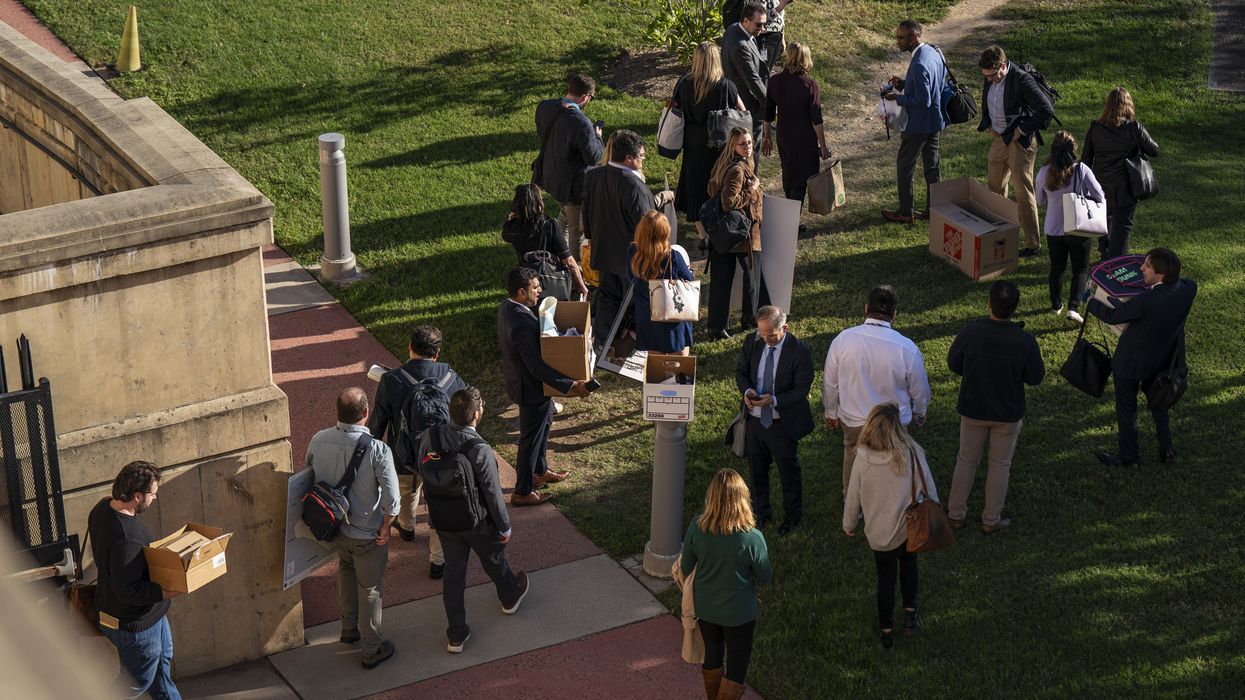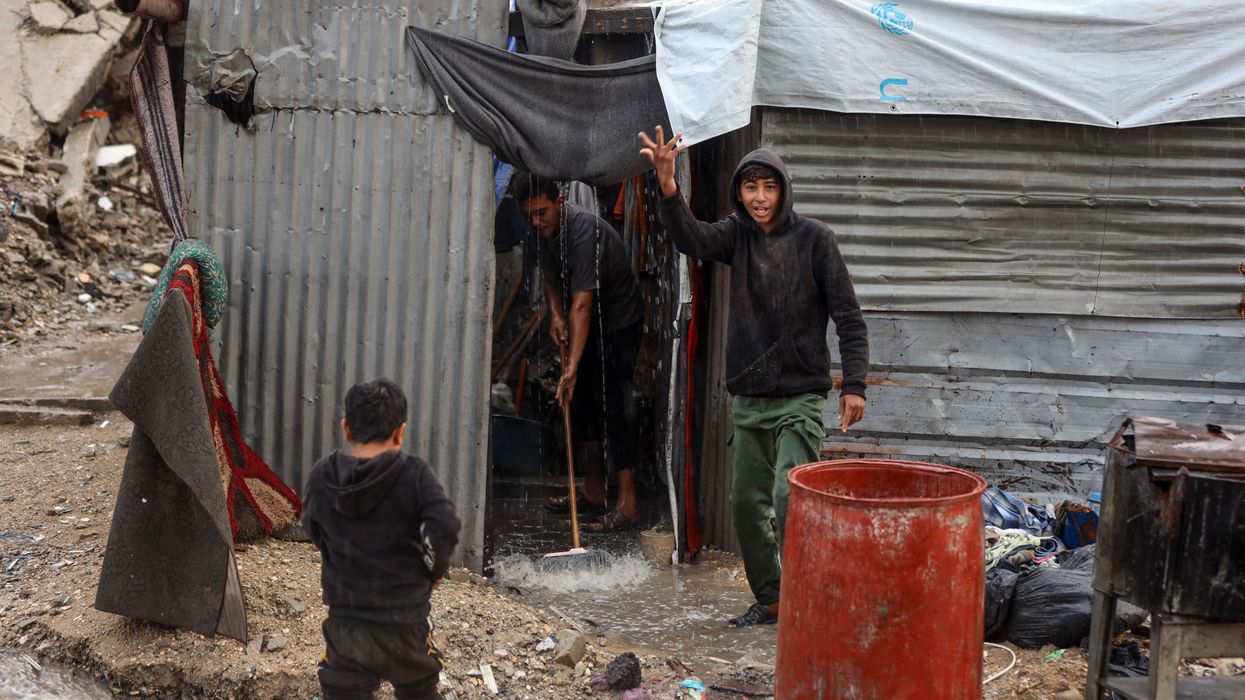October, 22 2021, 01:52pm EDT

People's Action Endorses Movement Politics Candidates in Washington
WASHINGTON
People's Action today announced eight Washington state, county, and city-level endorsements. The candidates are running movement politics, people-powered campaigns and will fight for the People's Action People's Platform once elected. Each of these candidates is also endorsed by People's Action member organization, OneAmerica Votes.
"Washington has suffered under the leadership of wealthy elites and corporate politicians for too long," People's Action Movement Politics Director Brooke Adams said. "Today that changes. We're proud to endorse a slate of candidates who will fight for our communities in Washington and build the multi-racial democracy we need."
Endorsees include:
- Lorena Gonzales for Mayor of Seattle
- Nikkita Oliver for Seattle City Council Seat 9
- Hugo Garcia for Burien City Council Position 1
- Danny Hererra for Yakima City Council District 2
- Toshiko Hasegawa for Candidate for Port of Seattle Commission Position 4
- Shukri Olow for King County Commissioner District 5
- Graciela Villanueva for Yakima School Board Director at Large
- Sandra Zavala-Ortega for Vancouver School Board Position 2
Lorena Gonzales
Lorena Gonzales was elected Council President by her peers in January 2020. She has the trust of lawmakers, advocates, and everyday residents for her vision and her ability to bring people together to get things done.For her work in and out of the courtroom, Lorena has earned multiple local and national awards, including Washington State Bar Association, Civil Rights Section: Distinguished Service Award (2010), and Champion for Children (2018, Save the Children). Lorena has served on various local, regional, and national non-profit boards, including Local Progress, Latina/o Bar Association of Washington, OneAmerica, OneAmerica Votes, and Washington State Association for Justice. Lorena Gonzalez has made a career of public service and the fight for economic and social justice. When the COVID-19 pandemic first hit Seattle, Lorena cut her maternity leave short to get back to work for the people of Seattle. She was born and raised in a migrant farm-working family in central Washington that never knew what the next day or following season might bring. Lorena earned her first paycheck at the age of eight as a migrant farmworker in the fields of Central Washington. As a child, Seattle was a faraway dream, one she aspired to be part of as she grew up.
Nikkita Oliver
Nikkita Oliver is a community organizer, cultural worker, artist, attorney, and candidate for Seattle City Council Position 9. Nikkita has lived in Seattle, Washington since 2004 and has served as a community support and cultural worker with Urban Impact, the Union Gospel Mission's Youth Reach Out Center, the Urban Youth Leadership Academy, Seattle Urban Academy, Who's Next?, Year Up, and Writers in School. They are currently Executive Director of CREATIVE JUSTICE--an arts-based healing-engaged space for youth. Nikkita Oliver was a founding member of the grassroots Seattle Peoples Party.
Hugo Garcia
Hugo Garcia was born in Guadalajara, Mexico and moved with his family to the Pacific Northwest in 1988. His father waited tables at a local Mexican restaurant and with that income alone, the family moved in and rented their first home in Burien in 1991 and his parents still live there today. Hugo attended Shorewood Elementary and is a proud graduate of the Highline School District. He and his brother and sister in law wanted to stay close to their parents and have made a duplex in North Burien their home for 15 years.
The fact that a family of five could be supported on his father's income as a restaurant waiter and his mom's part time income as a high school lunch lady; has shaped Hugo's understanding of the importance of building community and family resilience. It also highlighted for him how difficult it is for working families to save money to buy a home or pass down to their children. Hugo believes in the value of giving back that his parents taught him when they arrived in Burien, so he committed to being an active part of the Burien community in as many ways as he could. Hugo currently serves on both Burien's Planning Commission and Burien Economic Development Partnership (BEDP) and engages regularly with neighbors, Burien faith community and grassroots community groups.
Danny Hererra
Danny Hererra, an educator within the Yakima School District, is excited to announce his candidacy for the Yakima City Council District 2 position. Mr. Herrera is a lifelong resident of District 2 and a proud graduate from the University of Washington having received his Masters of Teaching in Elementary Education. He is eager to serve the residents of southeast Yakima and the entire Yakima community with integrity and strong leadership.
Toshiko Hasegawa
Toshiko Hasegawa is a fourth-generation Japanese American and lifelong Seattle resident, and is a product of the community that raised her. She grew up walking along the piers, buying salmon at the docks of the Duwamish River, and watching whales in the sound. Her career has been dedicated to working with communities to amplify the voices of those in need, and create policy that serves us all. In 2018, she was appointed Executive Director of the Commission on Asian Pacific American Affairs (CAPAA) - becoming the youngest member of Governor Inslee's cabinet, and the youngest ED in CAPAA's history. With CAPAA, she advises the Governor, State Legislature and other agencies on issues impacting marginalized communities in Washington. Outside of her role at CAPAA, she is proud to have worked with various city, county and national offices and organizations, including: King County Office of Law Enforcement Oversight, King County Councilmember Jeanne Kohl-Welles Office, Japanese American Citizens League - National office.
Shukri Olow
Dr. Shukri Olow is a mother, a community organizer, a doctoral scholar, and a candidate for King County District 5, which covers the cities of Kent, SeaTac, Tukwila, Burien, Normandy Park, Des Moines and Renton. For the last 14 years, she has worked directly in service to the residents of South King County on a variety of issues including housing, education and human services. Dr. Olow is running to bring her strong lived, professional, and community-based experiences to the County Council.
Graciela Villanueva
Graciela has served as Yakima Valley Farm Workers Clinic Recruiting Director for 13 years, moving the organization's recruiting program from crisis response to a pro-active recruiting process for an ever-growing organization. With 19 years of professional-level experience in Human Resources, Graciela previously worked as the HR & Diversity Director for Planned Parenthood of Central Washington and as the HR Manager for Trailwagons/Chinook RV in Yakima, WA. Graciela also serves on the Washington Association of Community & Migrant Health Centers' Workforce Committee and is a member of the Yakima School District Board of Directors.
Sandra Zavala-Ortega
Sandra Zavala-Ortega is a mother of Vancouver Public School children and a graduate of Vancouver public schools.
People's Action's Movement Politics program recruits, runs, and elects progressives into local and statewide offices across the country. Since 2016, People's Action has helped elect over 380 movement politics candidates. The program focuses on electing women, people of color, and low-income people who are grounded in progressive movement building with our member organizations.
People's Action builds the power of poor and working people, in rural, suburban, and urban areas to win change through issue campaigns and elections.
LATEST NEWS
After NYT Sues Over Pentagon Policy, Press Advocates 'Urge Other News Outlets to Follow'
"The only way to put an end to the Trump administration's multipronged assault on press freedom is for every news outlet to fight back at every opportunity," said the head of the Freedom of the Press Foundation.
Dec 04, 2025
Press freedom advocates on Thursday welcomed the New York Times' lawsuit over the US Department of Defense's "flatly unconstitutional" press policy, filed on the heels of the first briefing for what critics call the "Pentagon Propaganda Corps."
The newspaper and Times reporter Julian E. Barnes, one of several journalists who refused to sign the policy earlier this year, are suing the DOD—which President Donald Trump has dubbed the Department of War—as well as Defense Secretary Pete Hegseth and the Pentagon's chief spokesperson, Sean Parnell, in the US District Court in Washington, D.C.
The plaintiffs are asking Judge Paul L. Friedman, an appointee of former President Bill Clinton, to strike down provisions of the Pentagon policy that violate their First and Fifth Amendment rights, and warn that "if allowed to stand, that policy will upend the longstanding and 'healthy adversarial tension between the government, which may seek to keep its secrets' and 'the press, which may endeavor to' report them... and will deprive the public of vital information about the United States military and its leadership."
The filing notably comes not only as the DOD celebrates that dozens of "independent journalists, bloggers, and social media influencers" who "are not associated with legacy media outlets, including print media such as newspapers and magazines, and broadcast media, such as cable television news," have joined the new Pentagon Press Corps in exchange for signing the controversial agreement, but also as Trump and Hegseth face mounting outrage over boat bombings that experts argue are "war crimes, murder, or both."
Charlie Stadtlander, a spokesperson for the newspaper, said in a statement that "the Times stands with fellow news organizations across digital, print, and broadcast media, including many conservative outlets, in strongly opposing this unprecedented policy."
The paper has hired a prominent First Amendment lawyer, Theodore J. Boutrous Jr. of Gibson Dunn. The Washington Post reported that "lawyers representing the Times said they discussed litigation with other news organizations but ultimately decided to proceed on their own. They said they would welcome other outlets filing their own lawsuits or amicus briefs in the Times' case."
While Parnell said in a statement that "we are aware of the New York Times lawsuit and look forward to addressing these arguments in court," journalists and media advocacy groups are already signaling support for the newspaper—which is also battling a $15 billion defamation suit refiled by the president in October.
Reporters Committee for Freedom of the Press vice president of policy Gabe Rottman said Thursday that "the Pentagon's press access policy is unlawful because it gives government officials unchecked power over who gets a credential and who doesn't, something the First Amendment prohibits."
"The public needs independent journalism and the reporters who deliver it back in the Pentagon at a time of heightened scrutiny of the department's actions," he asserted. "We look forward to lending our voice in support of this suit."
The Pentagon Press Association said it was "encouraged by the New York Times' effort to step up and defend press freedom," while White House Correspondents' Association president Weijia Jiang declared that the WHCA "stands firmly" with the newspaper and described the suit as "a necessary and vital step to ensure journalists can do their jobs."
Clayton Weimers, executive director for Reporters Without Borders USA, said that "it's great to see the New York Times continue to proactively defend press freedom in the courts as well as on their pages. We all know by now that capitulation to Donald Trump's authoritarian impulses never works out, but fighting back will."
"This is the logical next step after the mass refusal of journalists to sign Secretary of Defense Hegseth's loyalty pledge," Weimers added. "Journalists must be able to cover the government critically and freely."
Pointing to television companies' recent settlements with the president, Freedom of the Press Foundation executive director Trevor Timm said that "in an era where news networks seem to be caving to Trump's censorious tactics left and right, it's refreshing to see the New York Times leading by example and sticking up for the First Amendment in court."
"An attack on any journalist’s rights is an attack on all. And the only way to put an end to the Trump administration's multipronged assault on press freedom is for every news outlet to fight back at every opportunity," Timm continued. "We urge other news outlets to follow the Times' lead."
"These days, the government has countless platforms of its own to tell the public what it wants it to know. A free and independent press isn't needed for that," he noted. "The Constitution guarantees one anyway precisely because the public needs the information the government does not want it to know. The Pentagon's absurd access pledge has been an affront to the First Amendment since the first day they proposed it. And we look forward to a federal judge throwing it out with the trash, where it belongs."
Keep ReadingShow Less
UN Experts Say Those Ordering and Carrying Out US Boat Strikes Should Be 'Prosecuted for Homicide'
“US military attacks on alleged drug traffickers at sea," said two human rights experts, "are grave violations of the right to life and the international law of the sea."
Dec 04, 2025
Two United Nations rights experts warned that in numerous ways in recent weeks, the Trump administration's escalation toward Venezuela has violated international law—most recently when President Donald Trump said he had ordered the South American country's airspace closed following a military buildup in the Caribbean Sea.
But the two officials, independent expert on democratic and international order George Katrougalos and Ben Saul, the UN special rapporteur on protecting human rights while countering terrorism, reserved their strongest condemnation and warning to the US for the administration's repeated bombings of boats in the Caribbean and the Pacific, which have targeted at least 22 boats and killed 83 people since September as the White House has claimed without evidence it is combating drug traffickers.
The strikes, said Katrougalos and Saul, "are grave violations of the right to life and the international law of the sea. Those involved in ordering and carrying out these extrajudicial killings must be investigated and prosecuted for homicide.”
Human rights advocates have warned for months that the strikes are extrajudicial killings. Trump has claimed the US is in an "armed conflict" with drug cartels in Venezuela—even though the country is not significantly involved in drug trafficking—but Congress has not authorized any military action in the Caribbean.
Typically, the US has approached drug trafficking in the region as a criminal issue, with the Coast Guard and other agencies intercepting boats suspected of carrying illegal substances, arresting those on board, and ensuring they receive due process in accordance with the Constitution.
The Trump administration instead has bombed the boats, with the first operation on September 2 recently the subject of particular concern due to reports that Defense Secretary Pete Hegseth issued an order for military officers to "kill everybody" on board a vessel, leading a commander to direct a second "double-tap" strike to kill two survivors of the initial blast.
Hegseth and Trump have sought to shift responsibility for the second strike onto Adm. Frank "Mitch" Bradley, the commander who oversaw the attack under Hegseth's orders. Bradley was scheduled to brief lawmakers Thursday on the incident.
The White House has maintained Bradley had the authority to kill the survivors of the strike and to carry out all the other bombings of boats, even as reporting on the identities of the victims has shown the US has killed civilians including an out-of-work bus driver and a fisherman, and the family of one Colombian man killed in a strike filed a formal complaint accusing Hegseth himself of murder.
The UN experts suggested that everyone involved in ordering the nearly two dozen boat strikes, from Trump and Hegseth to any of the service members who have helped carry out the operations, should be investigated for alleged murder.
After Hegseth defended the September 2 strike earlier this week, Saul emphasized in a social media post that contrary to the defense secretary's rhetoric about how the boat attacks are "protecting" Americans, he is carrying out "state murder of civilians in peacetime, like executing alleged drug traffickers on the streets of New York or DC."
As Common Dreams reported last month, a top military lawyer advised the White House against beginning the boat bombings weeks before the September 2 attack, saying they could expose service members involved in the strikes to legal challenges.
Katrougalos and Saul urged the administration to "refrain from actions that could further aggravate the situation and ensure that any measures taken fully comply with the UN Charter, the Chicago Convention, and relevant rules of customary international law."
They also emphasized that Trump had no authority to declare that Venezuela's airspace was closed last week—an action that many experts feared could portend imminent US strikes in the South American country.
“International law is clear: States have complete and exclusive sovereignty over the airspace above their territory. Any measures that seek to regulate, restrict, or ‘close’ another state’s airspace are in blatant violation of the Chicago Convention,” said the experts. “Unilateral measures that interfere with a state’s territorial domain, including its airspace, risk fully undermining the stability of the region and are seriously undermining Venezuela’s economy."
Saul and Katrougalos further called on the White House not to repeat "the long history of external interventions in Latin America."
“Respect for sovereignty, nonintervention, and the peaceful settlement of disputes," they said, "are essential to preserving international stability and preventing further deterioration of the situation.”
Keep ReadingShow Less
Human Rights Group Warns US Gaza Plan Will Impose 'Unlawful Collective Imprisonment' of Palestinians as New Details Emerge
“The design of these proposed cities mirrors the historical model of ghettos,” said the Euro-Mediterranean Human Rights Monitor, which said the US plans to cram 25,000 people into areas smaller than a square kilometer.
Dec 04, 2025
A prominent international human rights organization is warning that the United States' plan for postwar Gaza will impose "unlawful collective imprisonment" on the Palestinian civilians who have survived two years of genocide.
In November, several news outlets reported on the Trump administration's plan to carve Gaza in two: a so-called “green zone” controlled by Israel and a “red zone” controlled by the militant group Hamas.
The US would construct what it called “Alternative Safe Communities” for Palestinians to live in the Israeli-controlled portion of Gaza, which is over half of the territory under the current "ceasefire" agreement.
The New York Times described these communities as "compounds" of 20,000 to 25,000 people, where Israeli officials reportedly argued they should not be allowed to leave.
The initial reporting raised fears that the US and Israel were constructing what would amount to a "concentration camp," where Palestinians would be forced to live in squalid conditions without freedom of movement.
On Wednesday, the Euro-Mediterranean Human Rights Monitor released new details on how Palestinians, currently facing mass displacement from their homes in the portion of the strip not occupied by Israel, would be corralled into the green zone under the US proposal.
The Geneva-based group issued a stark warning about the plan, which it said carried "grave risks, including the effective displacement of Palestinians from their homes and the transformation of large parts of Gaza into closed military zones under the direct control of the Israeli army."
“Entry and exit would be permitted only through security screening, effectively converting these sites into overcrowded detention camps that impose severe restrictions on residents’ freedom of movement and daily life."
Euro-Med's report explains that the transfer of Palestinians would be carried out using "various pressure tactics."
"This is done by creating a coercive environment in the red zone and making access to relative protection and basic services conditional on relocating to designated areas within the green zone, following extensive security screening and vetting," the report says. "This removes any genuine element of consent and places the process squarely within the scope of forced displacement prohibited under international humanitarian law."
It also provides new details on the conditions Palestinians would be subject to once they've arrived: "The plan includes the establishment of 'cities' of prefabricated container homes (caravans) in the green zone, each housing around 25,000 people within an area of no more than one square kilometer and enclosed by walls and checkpoints."
This means these Palestinian cantons would be over three times as densely populated as the Tel Aviv District, the most crowded in Israel, which has about 8,130 people per square kilometer.
"Entry and exit would be permitted only through security screening, effectively converting these sites into overcrowded detention camps that impose severe restrictions on residents’ freedom of movement and daily life," the report continues.
This is not the first proposal to use the promise of safety to lure Palestinians into an enclosed space without the right to leave.
Earlier this year, following US President Donald Trump's call for the people of Palestine to be forcibly removed from the Gaza Strip, Israeli Defense Minister Israel Katz proposed the creation of a massive “humanitarian city” built on the ruins of Rafah that would be used as part of an “emigration plan” for hundreds of thousands of displaced people.
Under that plan, Palestinians would have been given “security screenings” and once inside would not be allowed to leave. Humanitarian organizations, including those inside Israel, roundly condemned the plan as essentially a “concentration camp.”
Euro-Med said that the design laid out in the new US plan "mirrors the historical model of ghettos, in which colonial and racist regimes confined specific groups to sealed areas surrounded by walls and guard posts, with movement and resources controlled externally, as seen in Europe during World War II and in other colonial contexts."
Keep ReadingShow Less
Most Popular










